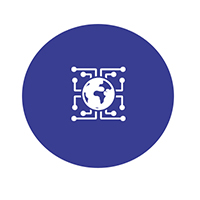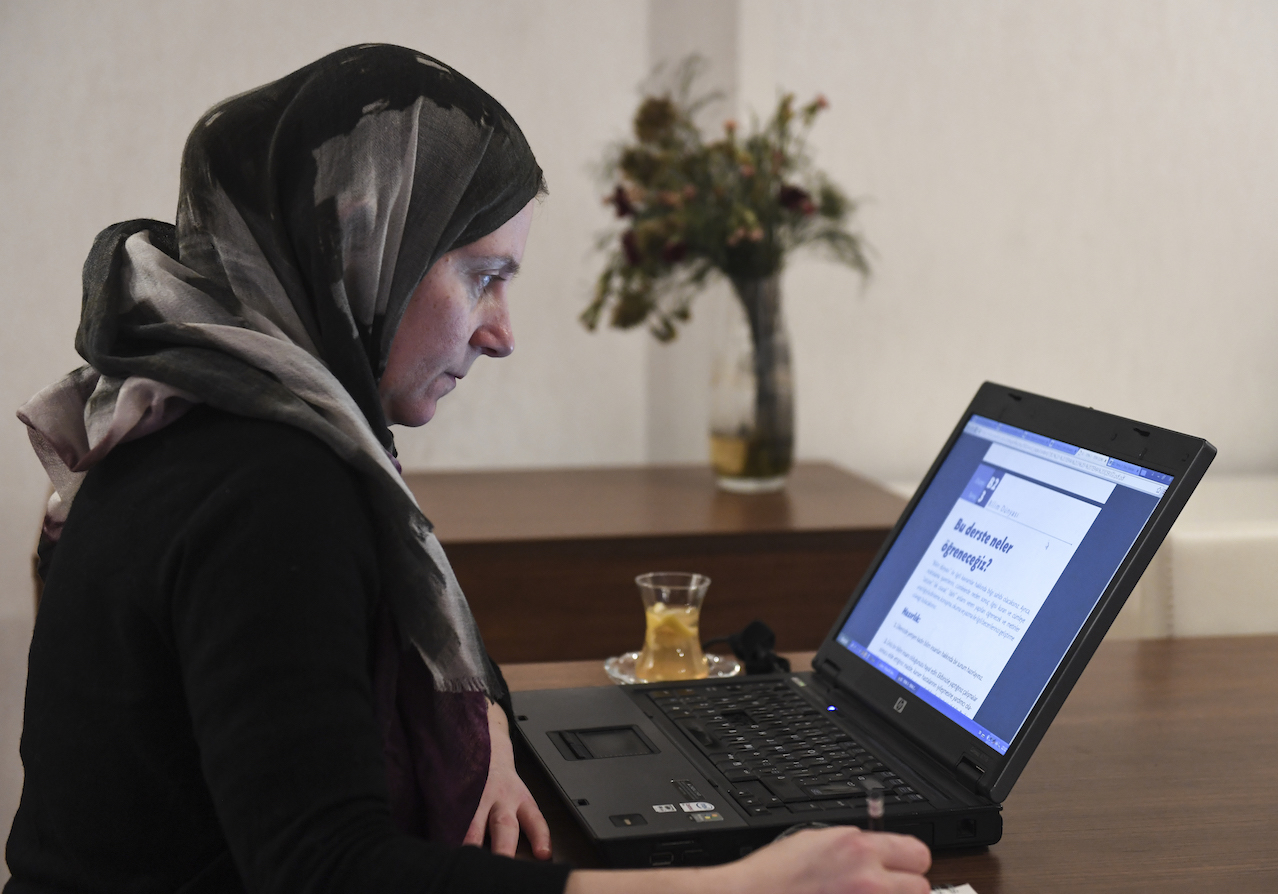Digital transformation

COVID response: Digital transformation
The digital transformation was already a reality in Europe and Central Asia, as UNDP and many governments have begun to transfer legal, social and civil service delivery online. Accelerated digitalization can be expected to create new business models and opportunities for digital leapfrogging in traditional industries and governance.
The COVID-19 crisis has highlighted the need for significant support and investments on digital transformation and effective digital governance across all countries in the region, particularly to ensure the continuity and delivery of core government functions.
In the past months, business continuity was severely hampered, and many government officials and staff had to continue working in their physical offices not only due to infrastructure issues, but most importantly due to the presence and location of data and information in offline data files and paper-based systems.
But while there been much emphasis on digital tools and technologies, we must also support the analogue component of digital transformation –policy, institutional coordination and trainings, and leadership – remains a significant challenge in many countries in the region, and thus may continue to constrain effective digital transformation if left unaddressed.
We are working to help governments deliver services remotely, establish digital platforms for social services and e-commerce, close the internet access gap and build digital finance options for improved remittance flows.
Our country offices are quickly adapting their delivery modes to this new reality & tapping into digital opportunities to respond to the crisis.
Here's what we're doing
- To promote alternative employment opportunities, like remote employment and freelance engagements, UNDP in Armenia created a web platform to promote and facilitate job opportunities. Incubation support (mentorship and financial) was given to startup ideas, and UNDP/Kolba Lab's newly launched “Kolba Jobs” is providing online skill-building opportunities for alternative jobs.
- In Azerbaijan, UNDP in partnership with the Ministry of Transport, Communications and High Technologies launched an online one-stop platform for all e-services available to citizens quarantine, and the Government and UNDP launched a WhatsApp bot to answer questions from the public about Coronavirus, and to give prompt, reliable and official information 24 hours a day.
- UNDP in Bosnia and Hezegovina gathered 130 domestic and international experts and decision-makers at all levels of governance to share experiences in using new technologies within COVID-19 response and discuss the accelerated enhancement of public services and public administration. A network of representatives of governments and digital transformation experts will create a collaborative platform to discuss visions, experiences and solutions for a new generation of administration in the country.
It also collected extensive data for its Economic Pulse of Bosnia and Herzegovina, a platform for insights into trends and the state of the private sector during and post COVID-19 crisis, reaching 14,000 domestic companies for a comparative analysis of the state of the private sector in June vs. April this year.
- UNDP provided new technology dashboards for the emergency response center in Georgia, to help manage the pandemic. The center operates 330 ambulance crews and manages up to 4,500 calls for help every day.
- UNDP is supporting telecommuting arrangements of the Kazakhstan Government to ensure its business continuity, linked to the current public sector reform. It’s focusing on civil servants, utilizing digital modalities of work and to help communication and advocacy work.
As part of its early recovery efforts, employment measures will be connected to labor market modernization efforts, with future skills and digitalization being at the core.
The immediate need for use of digital services revealed a low digital literacy in Kazakhstan. As over 80% of public services were digitalized, the E-gov call centre received almost 13 million calls during 2 months of quarantine. UNDP arranged for 450 volunteers throughout the regions to assist in increasing the digital literacy of the users of public services and decrease the workload of one-stop shops during the next 6 months.
In addition, UNDP supported the National Preventive Mechanism against torture with development of digital tools to monitor closed institutions. A digital platform allows them to conduct on-line interviews with people in detention places, store the collected data and evidences of torture and cruel treatment, and generate statistics analysis and reporting on monitoring visits
- UNDP supported the development and implementation of a inventory platform for medical supplies in Montenegro, with real-time tracking of procurement and wear of medical and protective equipment in hospitals and health centers. It’s also applied digital tools to develop a data package to accelerate COVID case detection and situation reporting, ensuring guidance on securing privacy, data protection and respect to human rights.
UNDP upgraded the e-Social Card system to facilitate new cash transfers to enable ad-hoc payments to the poorest families, to help them through financial hardship exacerbated by the pandemic, and .and developed e-enrolment into schools and kindergartens, cutting registration from months to minutes. In less than a week, more than 70% of kids were enrolled – from the comfort of their home
In cooperation with the Blood Transfusion Institute of Montenegro, UNDP and the ‘AB+’ team of innovators - whose solution won at CoronaThon.me - are developing a platform linking blood donors with the national transfusion system, providing easily accessible data and exchange of information on which blood type is in demand, where the donors can provide it as well as emergency alert to potential donors, thus bridging the gap and tackling the shortage of certain blood types.
- In North Macedonia, UNDP-developed e-platforms and e-learning tools are being offered to municipalities for outreach, communication and information-sharing purposes. UNDP also established an online dialogue space for Mayors, together with virtual programming for mayors, municipal councilors and municipal staff on crisis leadership and crisis communication.
- Together with the European Space Agency and private sector companies, UNDP in Moldova established a Big Data for COVID-19 partnership that uses cross-sector datasets (e.g. mobility, electricity consumption, internet traffic) to better understand and tackle emergent problems.
In partnership with other agencies, UNDP supported the Ministry of Education, Culture and Research in adjusting the online platform created by UNDP in 2019 to digitalize the educational process for the challenges and needs of the education system during the pandemics.
- UNDP Serbia held the digital meet-up "Data against Coronavirus", inviting the data science community to come together and explore how data can be used to fight Coronavirus.
- UNDP in Tajikistan is tailoring its ongoing business acceleration programs to support vulnerable youth and women-led projects and small businesses in potential areas of growth, like online retail, delivery of goods and services, digital platforms to consolidate service delivery, and reorienting SMEs to address growing local demand for specific goods and services.
It’s also is focusing on effective emergency coordination within the healthcare system through a digital platform that links central and regional levels through data collection, data analysis and management.
- In Turkey, Syria’s Crisis Response Program ensured the continuity of its learning and training programme for refugees through distance technology but also adjusted its activities to equip Syrian owned enterprises on how to use digital tools to maintain and develop their businesses in the time of crises.

Syrian refugees in Turkey can continue their language lessons and business skills trainings online. Photo: Levent Kulu UNDP Turkey

 Locations
Locations